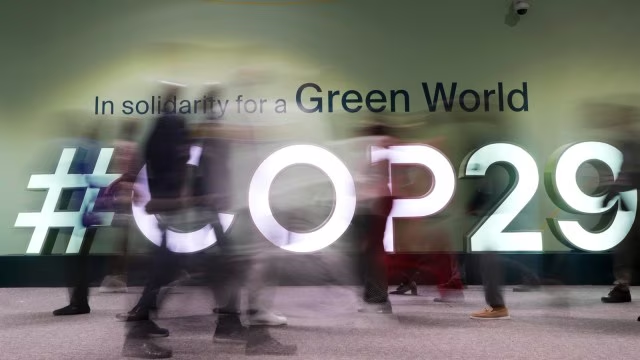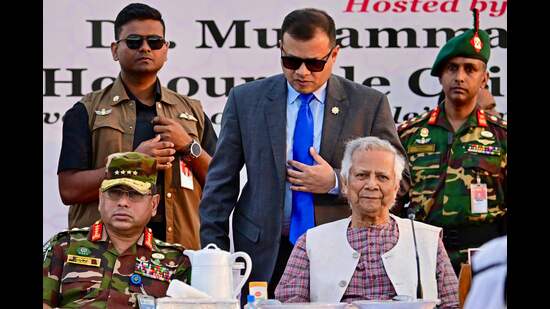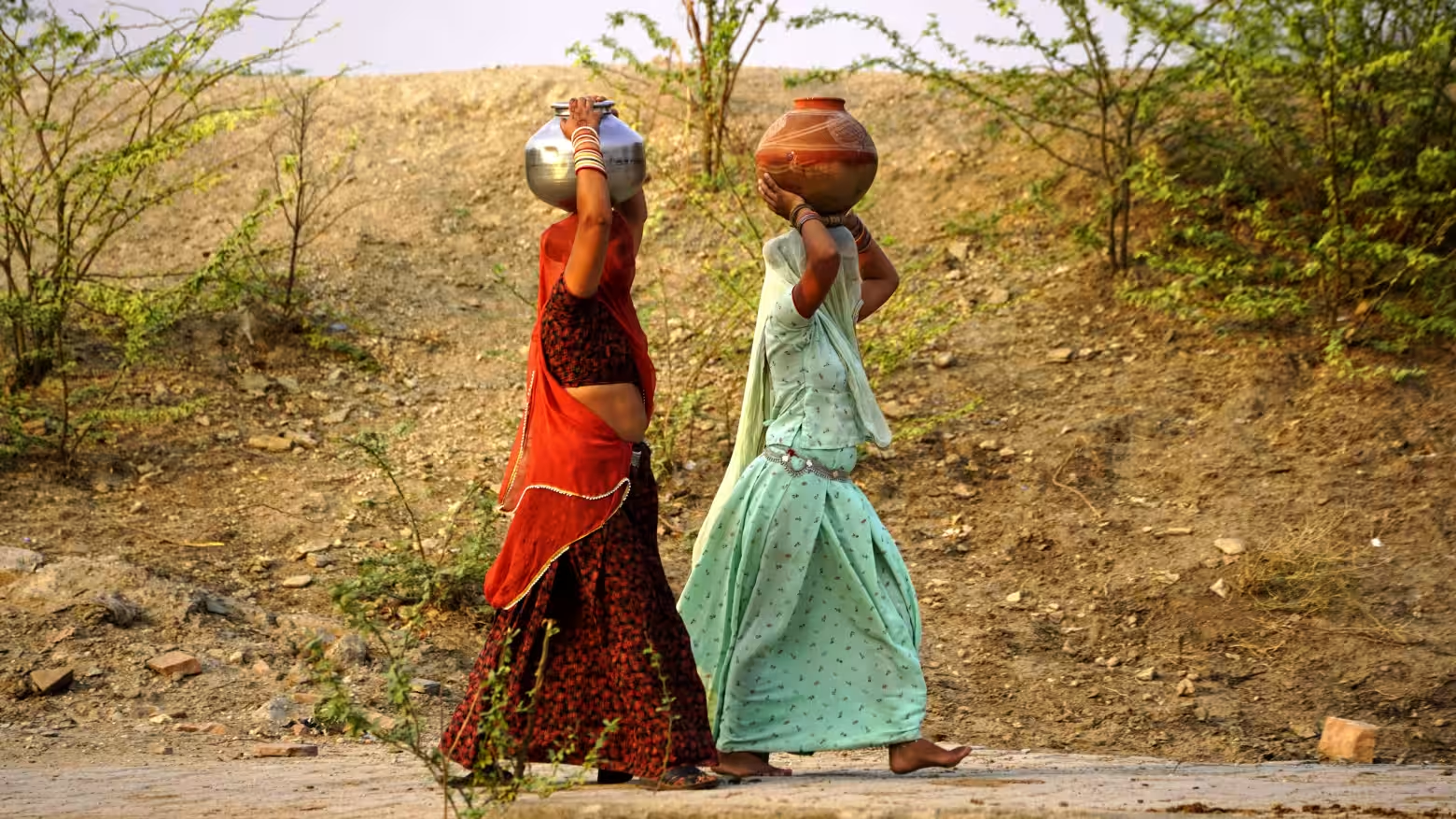Prof. Syed Munir Khasru
The Indian Express
Nov 13, 2024
Link: https://indianexpress.com/article/opinion/columns/cop29-india-education-climate-crisis-9667558/
_______________________________________________________________________
With global leaders convening at COP29 in Baku, Azerbaijan, one of the key concerns is the rapidly worsening effects of climate change that are resulting in severe disruption to education, with climate-related challenges impacting over 400 million students globally. Additionally, climate change is estimated to contribute to 2,50,000 deaths annually from malnutrition, malaria, diarrhoea, and heat stress. Its devastating impacts are being acutely felt in the heart of Indian society as the country’s educational and healthcare systems are bearing the brunt of rising temperatures, recurrent floods, and erratic weather patterns, putting the lives and futures of millions of children and vulnerable citizens at risk.
Education and climate
Across various states, extreme heat has forced schools to close for the first time. Temperatures have surged beyond 50 degrees Celsius, rendering classrooms with little and/or no ventilation unfit for learning. The closures are not disruptions, rather, they are necessary for survival. Overcrowded and poorly ventilated classrooms are becoming dangerous environments and shutting them down is the only way to protect students from the adverse health effects of the heat.
The situation is especially damaging for rural and low-income urban areas with limited resources. Many schools lack basic infrastructure like electricity, and classrooms without fans or cooling systems quickly become oppressive spaces. The effects on students’ education are severe. Studies are interrupted, dropout rates rise, and educational inequalities worsen as climate-related challenges create insurmountable obstacles to learning.
Moreover, climate change is fuelling a new wave of displacement. In coastal and flood-prone regions, families are increasingly forced to migrate due to rising sea levels and frequent flooding. This disruption tears children from their schools, trapping them in a cycle of instability that raises the likelihood of permanent dropouts. Hard-fought progress in educational access is being undone by climate-induced migration, threatening the future of countless students.
Health under siege
In urban areas like Mumbai, the impact of climate change is playing out in a different way. Annual flooding, aggravated by erratic rainfall, is contaminating the water supply, leading to outbreaks of diseases such as cholera and dengue. Clean water has become a scarce commodity, and families are left boiling water multiple times a day in a desperate attempt to stave off infection. These struggles to access basic resources highlight the health risks that climate change is exacerbating.
India’s healthcare system, especially in rural areas, is ill-equipped to handle the pressures climate change is creating. Warmer, wetter conditions are perfect for mosquito-borne diseases, which are now spreading more widely and for longer periods. Diseases like malaria and dengue, once seasonal, have become persistent threats, particularly in communities that lack the resources to fight back. In cities, respiratory illnesses are on the rise as extreme heat and pollution combine to create a toxic environment, further burdening healthcare facilities that are already stretched thin.
Rural communities face even greater challenges. Poor sanitation, overcrowded health centres, and limited access to preventive measures make it nearly impossible to manage preventable diseases effectively. The extreme heat intensifies health risks, leading to more cases of dehydration, heat exhaustion, and vector-borne illnesses. Climate change is magnifying existing health disparities, hitting hardest in areas where access to healthcare is already a struggle.
The interconnected crisis of education and health
The impacts of climate change on education and health form a vicious cycle of disruption. Poor health keeps children out of school, while a lack of education leads to poorer health outcomes over time. Malnutrition, worsened by climate-induced food scarcity, adds to this problem. Climate change is projected to increase child stunting by 35 per cent by 2050. This stunting affects cognitive and physical development, hindering children’s academic progress and setting them up for lives of struggle.
The disruption of education, in turn, limits overall health outcomes. In areas prone to floods or extreme heat, health facilities are often damaged, leaving communities without essential services. Repeated disruptions like these prevent families from recovering quickly, reinforcing cycles of poverty and poor health. The need for resilient education and healthcare systems that can withstand these climate shocks has become not just urgent but essential to India’s future stability.
A call for action
Interim measures — shaded cooling in classrooms or rehydration programmes — while offering limited relief, fall short in the face of a crisis of this magnitude. India needs to invest in climate-resilient schools, equipped with adequate ventilation, sustainable cooling systems, and disaster-resistant facilities capable of withstanding increasingly extreme weather.
Healthcare requires a parallel transformation. Initiatives such as the National Programme on Climate Change and Human Health show promise. Yet, they require substantial funding and rapid expansion to serve the communities most at risk. Hospitals and clinics must be climate-ready, staffed by professionals equipped to respond to climate-sensitive illnesses. Failing now will result in health outcomes with severe, long-term consequences.
Enhancing early warning systems for heatwaves and disease outbreaks, improving food and water security, and implementing green spaces in urban areas can protect vulnerable populations from climate-related health risks. Addressing air quality by reducing emissions from fossil fuels will not only mitigate climate change but also improve respiratory health. Promoting climate-sensitive urban planning and sustainable transportation can reduce pollution and provide health co-benefits.
Building a climate-ready future
At COP29, focus on climate resilience has become imperative as climate change has transformed from an environmental issue into a profound human crisis affecting communities worldwide, including India. Protecting education and healthcare systems is not a choice but a necessity to ensure national stability and well-being. The stakes are high in building a resilient society where health, education, and security stand as pillars of progress amidst a shifting climate.




0 Comments